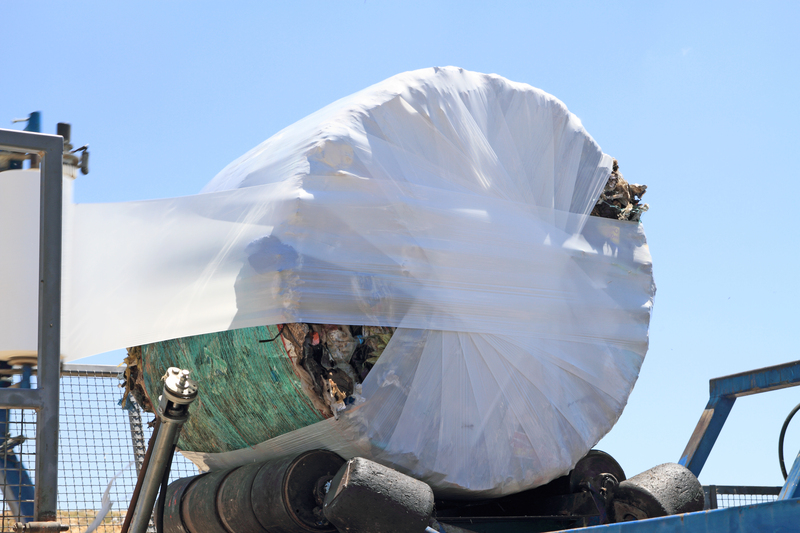Clearing Kitchen Clutter by Recycling Used Pots and Pans
Is your kitchen overflowing with mismatched cookware, battered frying pans, and stacks of old pots you no longer use? You're not alone. Kitchen clutter is a common problem, and the challenge of recycling used pots and pans can feel overwhelming, especially if you care about sustainability. This comprehensive guide will help you clear your kitchen clutter effectively by recycling old cookware responsibly, providing tips for sorting, donating, repurposing, and understanding the right way to recycle pots and pans.
Why Is It Important to Recycle Pots and Pans?
*Old cookware* occupies valuable cabinet space and can contribute to a disorganized kitchen, making meal preparation less efficient. But beyond organization, recycling pots and pans benefits the environment and supports sustainable living efforts. Here's why you should consider it:
- Reduces landfill waste: Cookware is often made from metals and materials that take decades to break down.
- Preserves natural resources: Recycling metal from pans reduces the need for mining new materials.
- Decreases carbon footprint: Manufacturing new cookware usually generates more greenhouse gases than recycling.
- Promotes circular economy: Items you no longer need can become resources for someone else or be transformed into useful new goods.

Understanding What Pots and Pans Are Made Of
To recycle cookware efficiently, it's important to know what materials you're dealing with. Most pots and pans are made from:
- Aluminum: Lightweight and commonly used for frying pans and saucepans.
- Stainless steel: Known for its durability and resistance to rust.
- Copper: Great conductor of heat, though less common for modern pans.
- Cast iron: Heavy, long-lasting, and often passed down through generations.
- Non-stick coatings: Teflon and ceramic coatings add complexity to recycling old pans.
Recognizing materials helps you decide on the best recycling options and ensure items are disposed of in an environmentally friendly way.
Decluttering: How to Decide What Cookware to Keep or Recycle
Before you start tossing everything in a box, take a methodical approach:
- Take Inventory: Pull out all your pots, pans, and lids. Lay them out so you can see what you have.
- Evaluate Condition: Check for warping, extensive rust, peeling non-stick surfaces, or broken handles.
- Assess Usage: Ask yourself which items you haven't used in the past year.
- Eliminate Duplicates: Do you have three frying pans of the same size? Keep the best, recycle the rest.
- Be Realistic: Sentimental value is legitimate, but be honest about what truly belongs in your kitchen.
Tips for Staying Organized
- Use drawer dividers or organizers for lids and smaller pans.
- Install hooks or racks to hang frequently used items.
- Label storage bins for specialty cookware you use seasonally.
Ways to Recycle or Repurpose Old Pots and Pans
Once you've sorted your pile, don't just toss those used pots and pans into the trash. Explore these eco-friendly options:
1. Donate to Charity or Community Organizations
- Thrift Stores: Goodwill, Salvation Army, and local charities welcome cookware in usable condition.
- Women's Shelters or Homeless Shelters: Such facilities often need extra kitchen supplies.
- Community Kitchens: Ask if they accept donations of used but functional pans and pots.
Note: Only donate clean and safe-to-use items. Heavily worn pans with flaking coatings should be recycled.
2. Sell or Swap Online
- Online classifieds: Platforms like Craigslist, Facebook Marketplace, or Nextdoor are great for passing on gently used cookware.
- Garage sales or community swaps: Clear space and give your old items a new home in your neighborhood.
3. Repurpose Creatively
- Planters: Drill drainage holes and use old pots as unique planters for herbs and flowers.
- Birdbaths or Feeders: Heavy-duty cast iron pans can make rustic garden decor.
- Art projects: Use your imagination for wall art, wind chimes, or creative storage solutions.
Check out platforms like Instagram or Pinterest for inspirational upcycling ideas!
4. Recycle at Metal Scrap Yards
- Most metal cookware--aluminum, stainless steel, copper, and cast iron--can be recycled at a scrap metal yard.
- Remove non-metal parts such as plastic handles or glass lids, as these can contaminate metal recycling streams.
- Check for minimum quantity requirements--some yards only accept larger batches.
Pro tip: Call ahead to confirm what your local scrap yard accepts!
5. Utilize Specialized Recycling Programs
- Brand take-back programs: Companies like Calphalon and TerraCycle sometimes accept old cookware for recycling.
- Municipal recycling: Some cities allow metal cookware in curbside pickup, but always check your guidelines first.
- Retail drop-off: Stores such as Sur La Table may offer recycling events or drop-off bins.
How to Prepare Pots and Pans for Recycling
Proper preparation ensures your recycling efforts are successful and safe. Here's how to get your pots and pans ready for their next life:
- Clean Thoroughly: Remove all food residue, grease, and dirt.
- Disassemble Parts: Separate metal parts from any glass lids, plastic handles, or silicone grips.
- Remove Non-metal Pieces: Discard or recycle other materials separately, according to your area's guidelines.
- Sort by Material: Group aluminum, stainless steel, copper, and cast iron separately for easy drop-off at recycling centers.
Can Non-stick Pans Be Recycled?
Non-stick cookware presents a challenge due to the synthetic coatings like Teflon, which are not accepted by most recycling facilities. However:
- Remove as much coating as possible: Some yards may accept pans with visible metal showing through.
- Check for specialized recycling programs: TerraCycle and certain manufacturers offer proper disposal or recycling services for Teflon pans.
- Avoid putting non-stick pans in basic curbside recycling: This contaminates the recycling stream and may cause broader issues for the facility.
If you can't recycle non-stick pans locally, consider upcycling them as organizers, plant trays, or for non-food uses in your home.
How to Find Recycling Centers or Scrap Yards
Finding a location that accepts old pots and pans for recycling is easier than you might think:
- Search "scrap metal recycling near me" or "recycle cookware near me" on Google.
- Use platforms such as Earth911 or RecycleNation to look up nearby facilities.
- Contact your municipal waste authority for official guidelines and recommendations.
Remember, not every recycling center takes household items, so always call ahead to confirm.
Sustainable Alternatives to Disposing of Cookware
The best clutter is the clutter you never create. Try these strategies to avoid accumulating unused pots and pans in the future:
- Buy high-quality cookware: Investing in durable products reduces the frequency with which you'll need to replace them.
- Choose multi-purpose items: Select pots and pans that function for multiple cooking techniques.
- Borrow or rent specialty pieces: If you only bake bread once a year, consider borrowing a pan from a friend or a community kitchen.
- Maintain what you own: Regular cleaning, seasoning cast iron, and correct storage will extend your cookware's lifespan.
Host a Cookware Swap Party
Organize a gathering with friends or neighbors where everyone brings unwanted kitchen tools. You might discover a new favorite while passing on something you no longer use.

Frequently Asked Questions about Recycling Used Pots and Pans
Can old pots and pans go in curbside recycling?
Most curbside recycling programs do not accept cookware due to its size, shape, and mixed materials. It's best to take old cookware to a local scrap yard or a specialized recycling event.
What should I do with glass lids?
Glass lids usually can't go into curbside recycling because they're made from heat-resistant glass, which differs from container glass. Check for glass recycling locations, donate if in good condition, or repurpose them in crafts or as serving trays.
How do I recycle pans with plastic handles?
Detach plastic handles from your metal pans before recycling. Most scrap yards or recycling facilities require only metal parts for processing.
Are vintage or antique pans recyclable?
Yes! Older cookware is often made from valuable metals like copper or cast iron, both of which are highly recyclable. However, consider selling, donating, or upcycling vintage pieces that might have substantial value or charm.
Conclusion: Decluttering Your Kitchen and Protecting the Planet
Clearing out unused pots and pans is not just about organizing your cabinets, but making a difference for the environment. By responsibly recycling old cookware, you prevent waste, support sustainability, and might spark a new DIY project or help a family in need. Remember:
- Donate or sell usable items before you recycle.
- Prep and sort materials for proper recycling based on your local guidelines.
- Consider upcycling or creative repurposing to give your cookware a second life.
With these steps, you'll pave the way for a clutter-free kitchen and a cleaner planet. Make recycling used pots and pans a regular part of your kitchen clean-up routine, and you'll be surprised at the space you reclaim--and the difference you make!